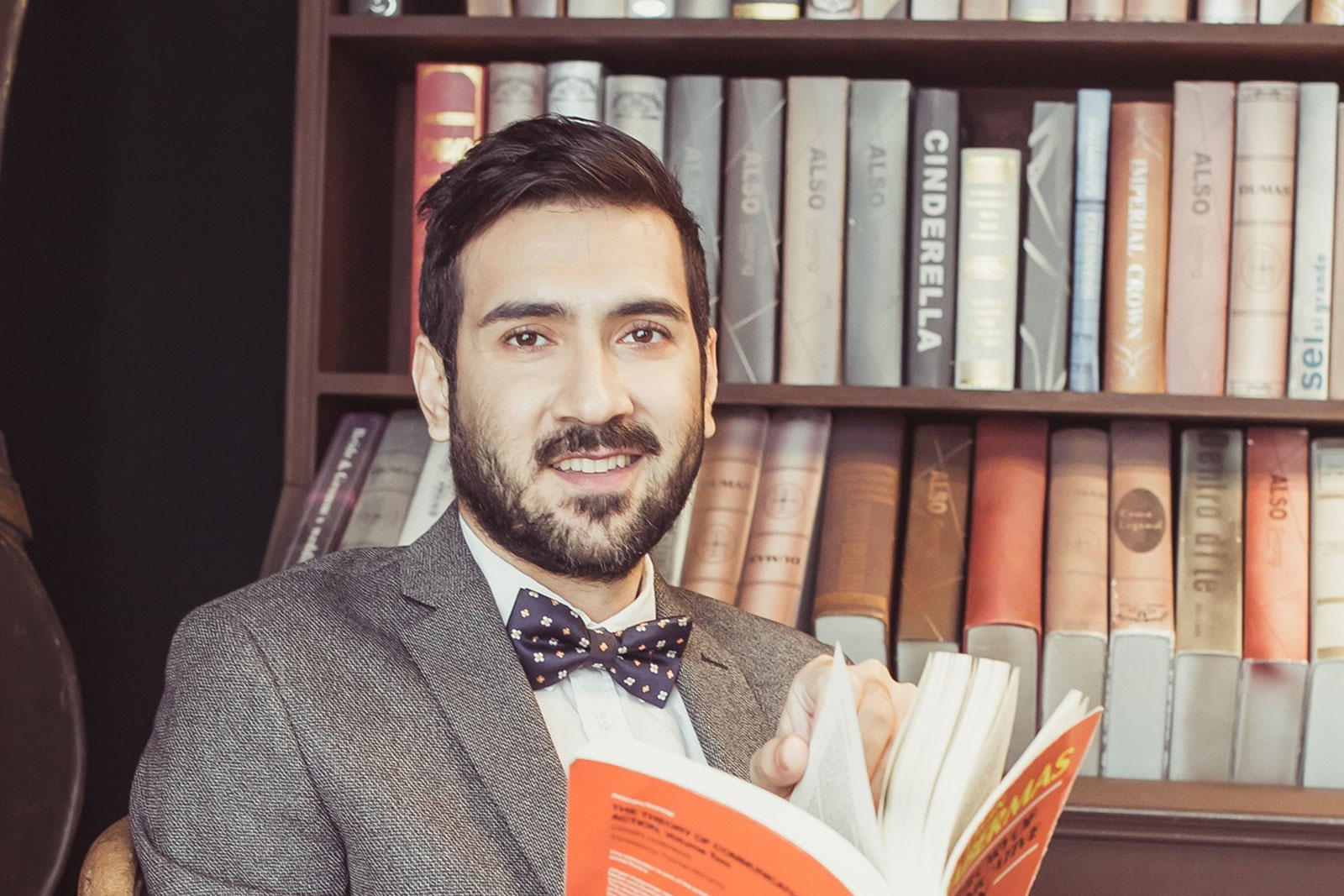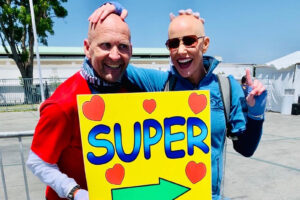Morhaf Al Achkar, M.D., Ph.D., is an expert at wearing many hats. The 37 year-old family physician based in Seattle, Washington finds meaning through his wide array of identities: Syrian immigrant, qualitative researcher, author, and lung cancer warrior. But the most important identifier for Achkar? Personhood.
“I am a person, first and foremost,” Achkar says. “I have rich stories of immigration. I’m a professor, I’m a physician, I’m a human being with aspirations. Cancer doesn’t define me. I choose to define myself.” This philosophy pushed Achkar to release his second book, a memoir titled “Being Authentic,” in May.
Generally healthy at age 33, his lung cancer diagnosis came as a shock. After completing medical school in Syria and immigrating to the U.S. in 2006, Achkar accepted a contract at University of Washington Medicine as a family physician in 2016. No stranger to hospitals, it was around this time that the physician became the patient as he began undergoing x-rays and scans of his lungs due to worsening shortness of breath. Fluid was discovered around his lungs and Achkar was diagnosed with stage IV lung cancer.
Achkar’s lung cancer is caused by a mutation of his ALK (anaplastic lymphoma kinase) gene, meaning he’s eligible for targeted therapy in the form of pills. The therapy has been successful at keeping the cancer at bay, providing Achkar an extension on life that he does not take for granted. This is evident in the pages of “Being Authentic,” which focuses on his early life in Syria, his cancer diagnosis and what the future holds.
“I am grateful and privileged to have the time, space, and energy to do this work. My weekends and nights were filled with writing and I’m appreciative of being able to do that,” says Achkar.
After his diagnosis, Achkar became even more aware of the importance of patient advocacy. He initially had a moment of realization that he had “become the number.” It was disturbing, but it also served as the beginning of his call to others in the cancer community to share their own stories about resilience in their lives.
“It became important to challenge the framework of a patient reduced to a number or their symptoms,” Achkar says. “[Writing this memoir], I wanted to invite everyone to look inwardly […] There is a lot of richness that will be added to those around you. By sharing our stories, we are leaving meaningful parts of us behind.”
Writing a memoir is not simple. While it may seem easy because you are writing about yourself, it can also be difficult for that very reason. Writers face difficult memories or emotions from the past, but that may be therapeutic in its own right. Achkar encourages everyone to “write for yourself, first and foremost.” For cancer warriors interested in sharing their own stories, Achkar offers unabridged enthusiasm and support.
“I think you should do it,” he says. “There is merit in telling stories of someone who is in the midst of struggles, and that is the authentic self. Claim your voice. Your story is worth being told.”
As Achkar continues practicing medicine at UW, he plans to conduct research for the follow-up of his first book, “Roads to Meaning and Resilience with Cancer,” as well as research the disparities marginalized communities are facing in the time of the COVID-19 virus. His memoir
“Being Authentic” is available digitally and in paperback on Amazon.







